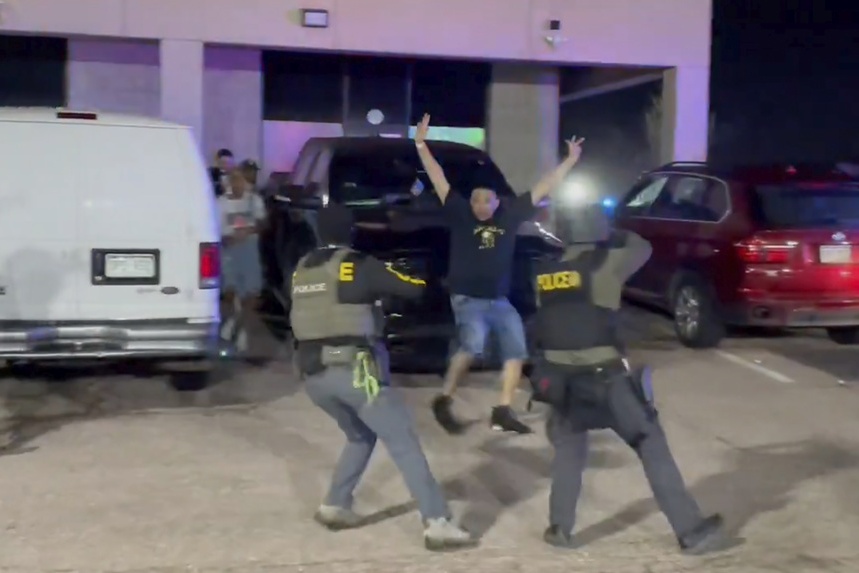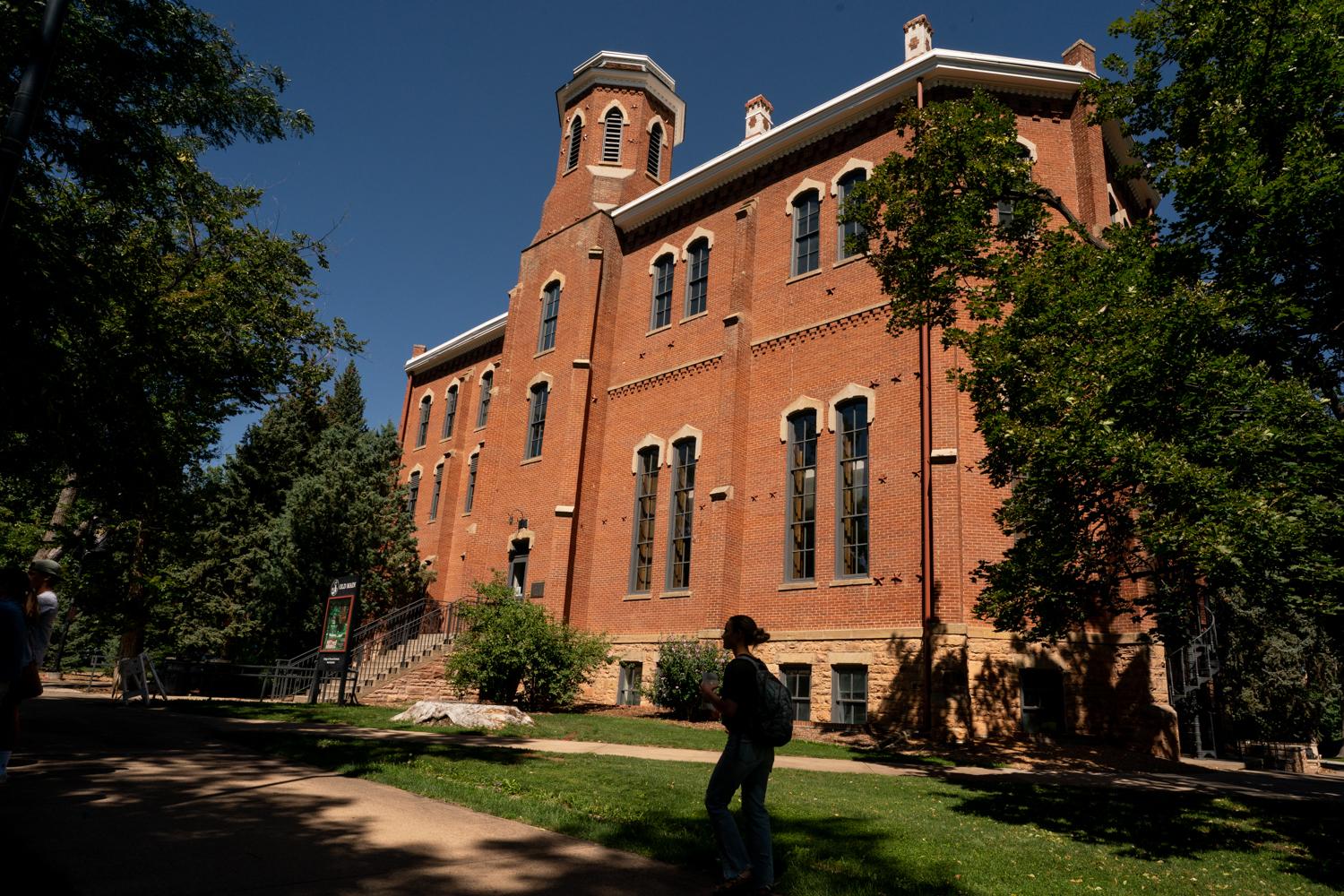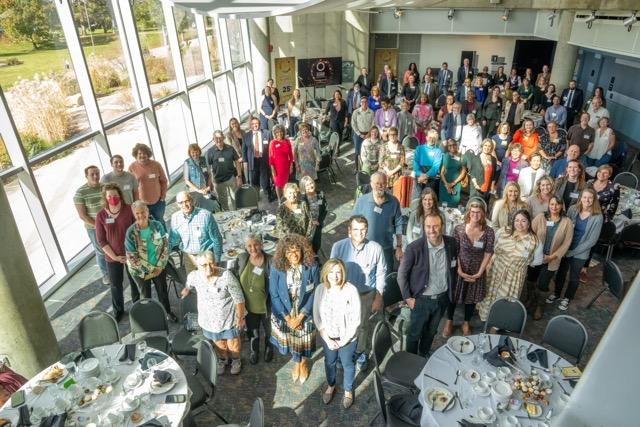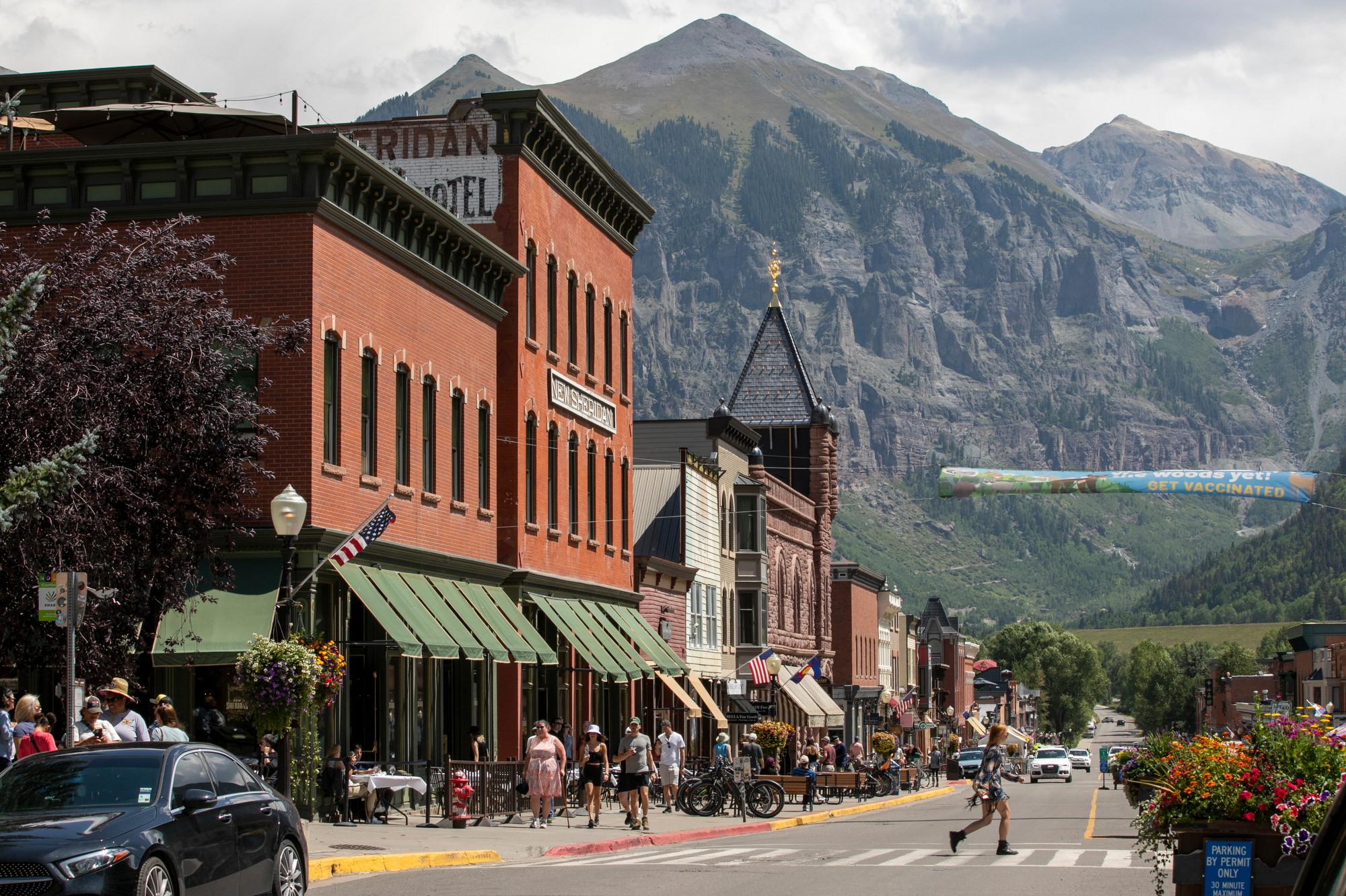
This year's edition of the Telluride Film Festival was supposed to be a triumphant — if still cautious — return to normalcy. But the new pandemic normalcy is uncertainty. With the spread of the delta variant around the world and at home, cultural events of all sizes are preparing the best they can to keep audiences safe and allow the show to go on.
After last year’s cancellation, the Telluride Film Festival is taking preventive measures for this year’s event over Labor Day weekend. To register, all badge holders had to upload a copy of their proof of vaccination in order to attend.
Then in August, the festival took another step: Now, all attendees must take a COVID-19 test no later than 72 hours before the festival and prove a negative test result to pick up credentials. If you don’t get a test, you can’t pick up your badge. The festival will also have a Curative van on-site to provide additional COVID testing throughout the weekend.
It’s an extra step another local film festival is adopting as well. When the Telluride Horror Show kicks off in mid-October, the festival will also require proof of vaccination or a negative COVID test. They will also have a testing van available for attendees. Festival director Ted Wilson said he worked with his host venues to figure out safety measures.
“If we have to require masks, we'll do the masks,” he said. “If we have to pull back and limit the capacity more, we'll do that.”
Like many other festival organizers across the country, Wilson had to weigh the options of how to host a film festival in 2021. Would the Telluride Horror Show go all-virtual as it did last year? Would it offer events in-person and online in a hybrid format? Or would it take place all in-person? Wilson and his team settled on going in person.
“A huge part of our event is the fact that we take place at one of the most crazy exciting mountain towns in Colorado, if not the country,” Wilson said. “We need to be in person if we're going to continue to be the Telluride Horror Show.”
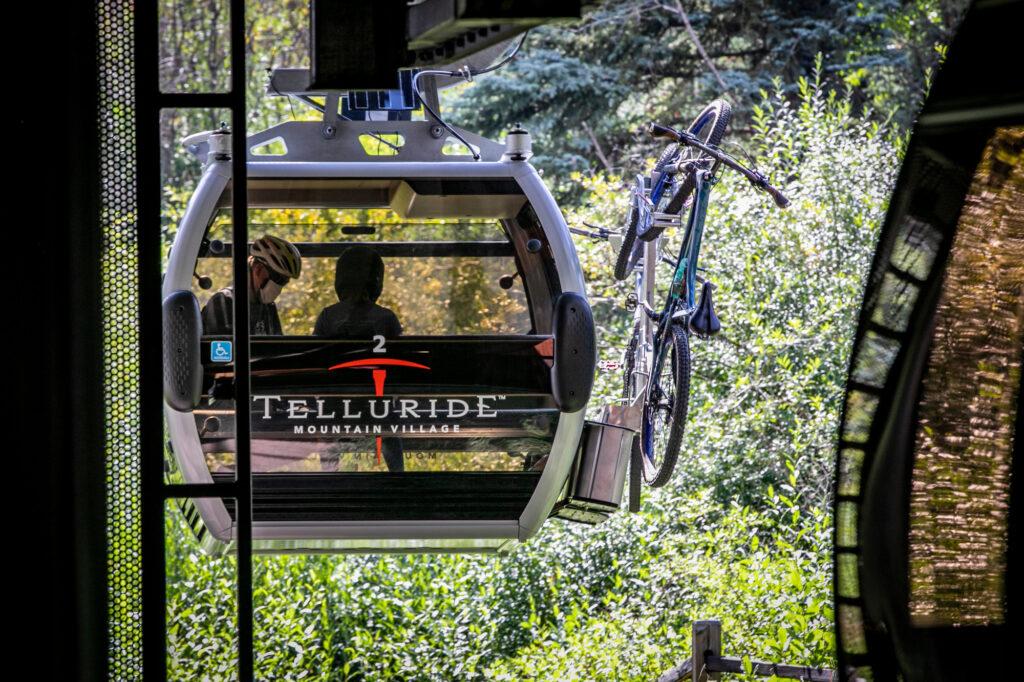
The hybrid approach of putting on events in person and virtually has its share of supporters. For Breck Film’s 40th anniversary in mid-September, executive director Amy Sides says keeping their virtual component for another year was always part of their plan in addition to hosting screenings, panels and parties in Breckenridge.
“Now with obviously the Delta variant becoming a bigger player in our plan here, we're going to follow all state and local guidelines for COVID and make sure to keep our audience safe and just still try to pull off a more normal festival as close as possible as we can,” Sides said. In addition to spacing out their largest venue, she said the festival plans on disinfecting and airing out theaters in-between, a practice other festivals are following as well.
“Worst case scenario would be that we just pivot and just go all virtual … but I don't anticipate that happening,” Sides said. “We're feeling pretty hopeful.”
- While Tourism Booms in Telluride Because Of Its Recreation And Festivals, Its Housing Market Is At A Crossroads
- At The Telluride Film Festival, Volunteers And Gig Workers Prepare For A Return To Normalcy — And Their Annual Traditions
- How Did The Telluride Film Festival Get Big? Thank The Awards Season Frenzy And The Mines That Once Surrounded The Town
Programming director Michael Brody also chose a hybrid approach for this year’s Crested Butte Film Festival starting in late September. He said he hopes the event will connect with both virtual and in-person audiences.
“It's an interesting community in that it's very last minute,” Brody said. “It's very much, ‘Let's hop on our bikes and ride to the center where it's happening,’ and so we kind of lost that but gained a whole new audience.”
But going the virtual route isn’t always so easy. Programmers like Brody can sometimes book films that can only be shown in person, giving local attendees a special event not available to online audiences.
“Our programming is a more complicated issue because we have certain films like ‘Nine Days’ and ‘The Truffle Hunters’ that are only in-person and we can't show them virtually,” he said. “It's made things a little more interesting, a little more complicated, but in a fun way.”
Festival director Corinne Hara says this year’s Vail Film Festival will remain entirely online for its run in late September. She says when checking with guests and filmmakers, she found they were not so comfortable traveling.
“For us, knowing that we had the success of online last year and then knowing that the filmmakers and the audience and the staff was supportive of doing virtual, it made sense for us to stay virtual this year,” Hara said.
The pressure for organizers and programmers is on. Not just to put on an unforgettable festival experience but also to keep their audiences and host communities safe in an ever-changing fall film festival season.
- ‘Joe Bell’ Star Reid Miller Talks Acting With Mark Wahlberg And How Bullying In Schools Has Changed
- Amy Herdy’s Time At The Denver Post Readied Her For The Difficulty Of ‘Allen v. Farrow’
- ‘Crestone’ Captures The Hedonistic Energy Of Internet Rappers Against The Backdrop Of The San Luis Valley
- Sundance Film Festival Brings Private, Small-Scale Premieres To Denver’s Sie FilmCenter
- Denver Film Festival Had To Adapt To Coronavirus. But Some Of The New Ideas Might Stick Around For Future Years

